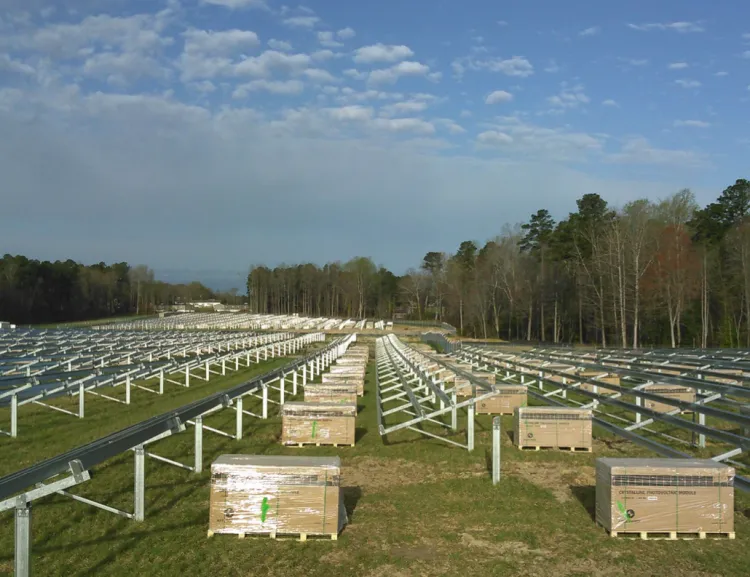North Carolina energy plan looks to clear remaining regulatory hurdles for solar
Aug 21, 2019 08:27 PM ET

Existing solar power policies in North Carolina will go under review as part of the state’s draft Clean Energy Plan. Published last week, it includes the retirement of 4GW of coal and the proposal of measures to drive renewable energy more broadly as well as boosting EV adoption in the US state.
The broad-scoped document covers the establishment of a state clean energy fund, backing for an offshore wind supply chain and a review of grid infrastructure plans.
The draft targets greater solar deployment, both at utility-scale and as part of the contribution from distributed energy resources (DER). The state has an existing competitive framework for solar deployment, meant to drive the roll-out of 4GW of large-scale solar by 2025. That, and other related policies will now be under review to ensure customers, and dominant utility Duke Energy, can acquire the renewable energy they want. This includes assessing the state’s existing community solar programme and developing an obligatory virtual net metering offering from the utilities.
The report also clearly states that as investment decisions are made across the state, conventional infrastructure choices will need to be heavily scrutinised.
“As RE and (DER) costs continue to fall and penetration rises, these assets will reach a point where they can be treated as a true grid resource, providing services that benefit both the customer and the utility. Intelligently managed DERs could offer a vision of a world where demand may be as easily dispatchable as supply,” the draft report states. Energy storage will also have a role to play in enabling more renewables, with the report citing the recent pilot of a solar-plus-storage for a rural community.
In response to the draft, Stephen De May, North Carolina president of Duke Energy, said the firm would continue to contribute to the plan.
“Duke Energy has significantly reduced carbon emissions by retiring coal and adding more renewables and cleaner natural gas. We are transitioning our system to even cleaner energy, while upholding our responsibility to provide reliable, affordable power to customers,” said De May. “We look forward to continued dialogue with diverse stakeholders to achieve the critical energy policy objectives for the state of North Carolina.”
Also read

